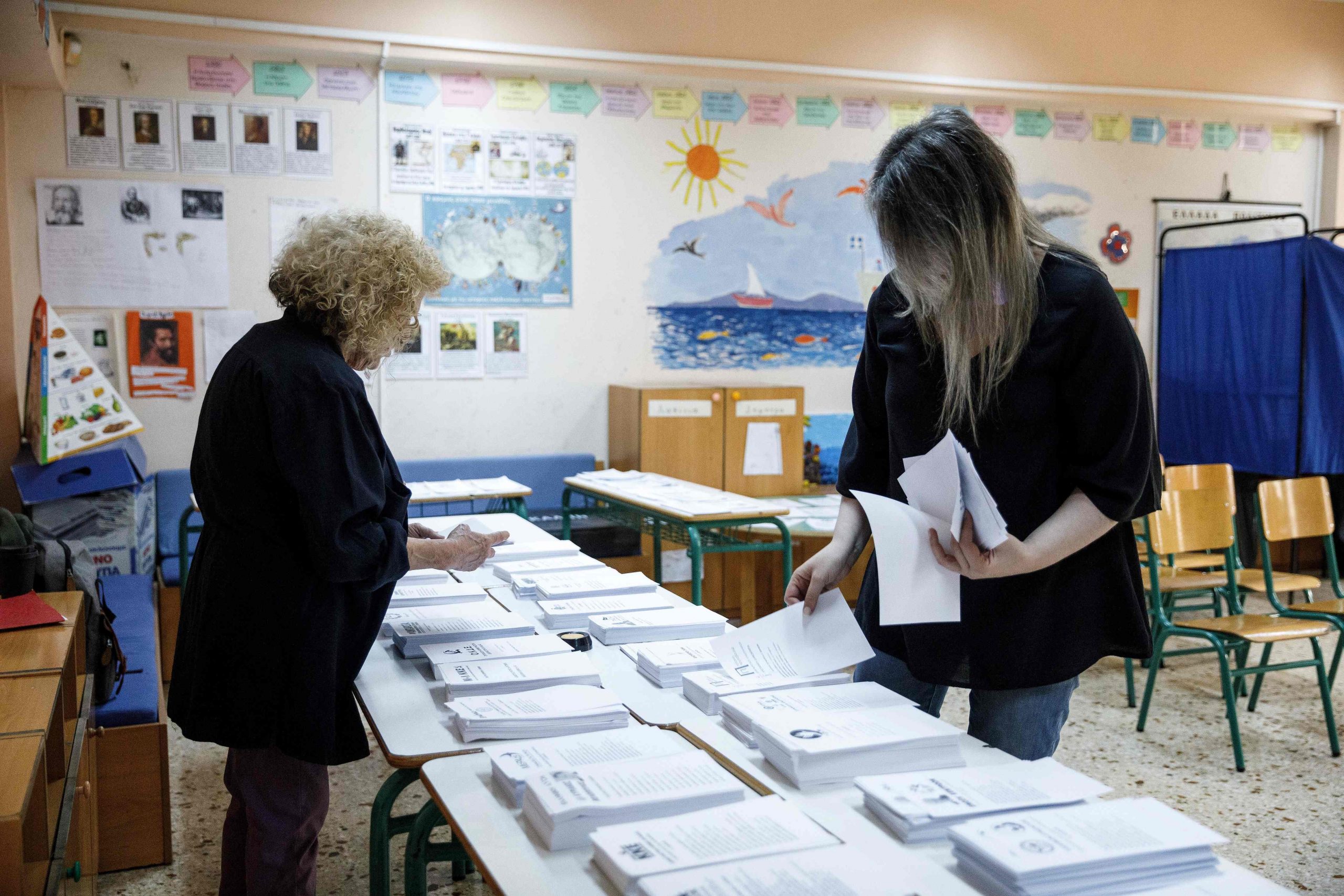The latest opinion poll results released this month has ruling New Democracy (ND) party continuing to field a comfortable lead over the second-place party, which in this case is now PASOK.
The survey, by the firm Opinion Poll, was presented on the prime-time news cast of the greater Athens regional television channel Action News.
The biggest concerns aired by respondents to the poll continued to be high inflation and the economy.
Specifically, in terms of voters’ intention ahead of the upcoming European Parliament election, ND center-right ND is preferred by 27.1% of respondents, compared to 11.5% for socialist PASOK. The current main opposition party, leftist SYRIZA, falls to third place and in single-digit territory, 9.9%. The figure for the undecided vote is 21%. Only another three parties are shown with figures above 3%, the threshold needed to enter Parliament, as a percentage of the valid votes in a general election.
Extrapolated and in answer to a question over voters’ preference for the EP election, ND is given 34.3%, 19.7 percentage points up from PASOK, which pools 14.6%. SYRIZA follows with 12.5%, the right-of-the-center Elliniki Lysi (Greek Solution) is at 9.5%, and the Communist Party (KKE) is favored by 9.4% of respondents.
Asked about their preference for a national election, 36.2% of respondents picked ND to 15% for PASOK.
Incumbent Kyriakos Mitsotakis is deemed as the most capable political leader for the prime minister’s post, at 36.9%. Interestingly, the answer “no one” comes in second, with 29.4%. All other contenders receive single-digit approval, beginning with SYRIZA leader Stefanos Kasselakis, in third place with 7.2% of respondents’ preferences.
Queried over what concerns them the most, 56.9% of respondents said inflation and cost-of-living, followed by the economic situation, at 31.3%. Worries over crime comes in third, at 22.9%.
Finally, asked about the prospect of allowing recognized non-state universities the right to operate in Greece, 53.4% of respondents said this was positive, compared to 39.7% who said it was a negative development.



